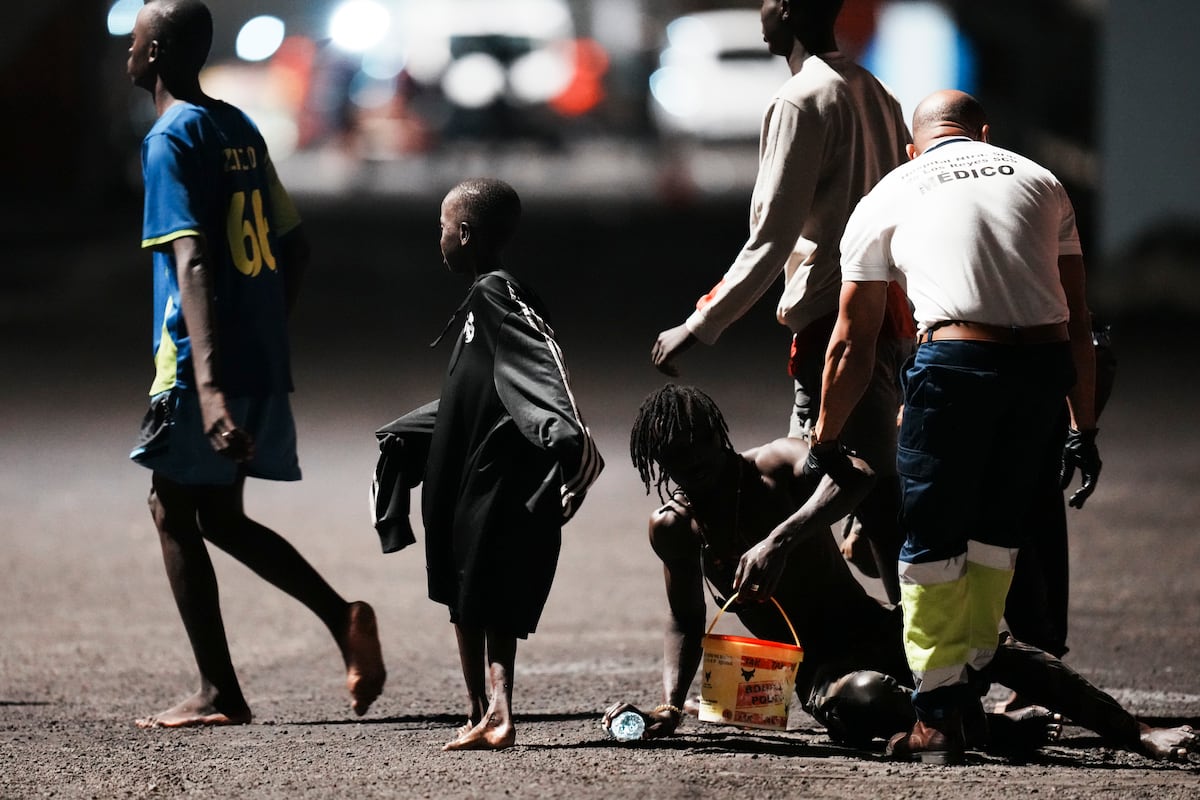The Government of the Canary Islands has sent to the central Executive and the parliamentary groups a legislative proposal to compulsorily distribute unaccompanied migrant minors throughout all the autonomous communities and thus try to solve a chronic problem experienced by the regions with the highest migratory influx.
The document includes the creation of a new entity, which would depend on the Ministries of Migration and Social Affairs, which would be obliged to make a “solidarity and proportional” distribution of unaccompanied migrant minors who arrive in Spain, regardless of their point of entry. .
The proposal maintains that the guardianship of minors be established in the host communities.
The migratory surge that has occurred since the end of summer in the Canary Islands has increased pressure on the child reception system.
The Canarian Government is currently responsible for approximately 5,500 children and adolescents, according to data offered on Monday by the president, Fernando Clavijo.
This overcrowding of the system has caused repeated complaints from the nationalist leader, who this Monday described the situation as “unsustainable.”
This being the case, the regional Executive has increased its pressure in recent months to ensure that the redistribution of these children and adolescents does not depend on the voluntariness of other communities.
In fact, the creation of a new legal framework that allows this was one of the agreements that made it possible for the Canarian Coalition to say yes to the investiture of Pedro Sánchez.
The Canarian proposal, prepared by the Ministry of Social Welfare, Equality, Youth, Children and Families and to which EL PAÍS has had access, offers two different ways to ensure the distribution of minors.
The first - the easiest to carry out, according to the legal team of the Ministry of Social Welfare, Equality, Youth, Children and Families - would mean partially reforming the Civil Code and the framework protocol that regulates action with foreign minors. unaccompanied
With this adjustment, the document maintains, guardianship would not fall on the community of entry from the first moment.
This would be limited to guarding the children while waiting for the Secretary of State for Migration - or this hypothetical newly created body proposed by the Canary Islands Executive called the National Organization for the Protection of Unaccompanied Foreign Minors - to redistribute them "in a solidarity and proportional” between the different regions.
It would not be until this transfer to the new centers had been completed that the communities would formally assume their guardianship.
The president of the Canary Islands, Fernando Clavijo, and the Minister of Youth and Children, Sira Rego, this Wednesday at the Government headquarters in Santa Cruz de Tenerife.
Miguel Barreto (EFE)
If this proposal is not approved, the Government of the Canary Islands offers a second possibility, which is, in its opinion, “more burdensome, complex and slow”, since it would require the modification of two organic laws and a royal decree (specifically the Law of Immigration, the Immigration Regulation and the Child Protection Law).
For this second option, the text recalls, parliamentary processing and an absolute majority in Congress are required.
The Executive chaired by Fernando Clavijo suggests in this sense adding several sections to these laws to grant the General State Administration the powers and obligation to distribute unaccompanied foreign minors throughout the national territory.
This distribution would be carried out through this new entity, which will act under the “principle of solidarity established in the Constitution.”
The communities, once the distribution is established, “will be obliged to assume their guardianship and adopt whatever protection measures are necessary.”
Government sources have expressed their willingness to study the Canarian Government's proposal.
The legislative change is not easy because it could be an invasion of regional powers, they explain.
The Minister of Territorial Policy and Democratic Memory and president of the Interministerial Immigration Commission, Ángel Víctor Torres, from Gran Canaria, stated this Tuesday of this new cabinet that the predisposition of the Government of Spain is absolute and that it is determined to work together with the Government of the Canary Islands in this matter.
“It has to be a shared and collaborative solution between all communities and it must also have the support and commitment of the different political groups in Congress, which are also the ones that govern many autonomous communities,” he stressed.
“The ideal scenario,” the Canarian president stated this Wednesday in a joint press conference with the Minister of Youth and Children, Sira Rego, “is a legislative modification through a decree law, which is immediate, and which "Then it was validated by all forces, despite the many difficulties with the majorities in Congress, but we will talk to everyone."
The document does not address at any time the financing of reception, another aspect that has generated friction between the central and regional governments.
This Monday, Rego announced that his department is considering increasing the amount allocated for this purpose by an extra 15 million, in addition to including an extra contingency fund worth 10 million euros.
The Minister of Social Welfare of the Government of the Canary Islands, Candelaria Delgado, described the same day as “absolutely insufficient.”
“That's what we're spending in a month,” she said.
“We need a much more ambitious response to the challenge of caring for unaccompanied foreign minors, and that is what we are asking for,” she added.
Subscribe to continue reading
Read without limits
Keep reading
I am already a subscriber
_

